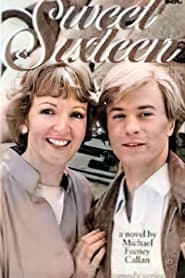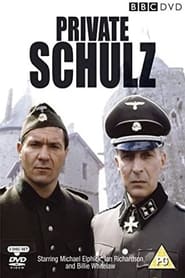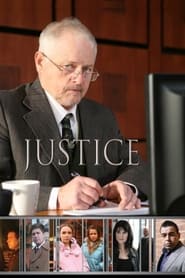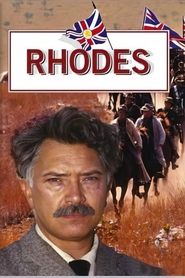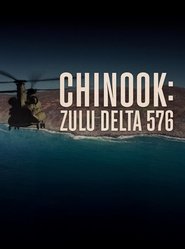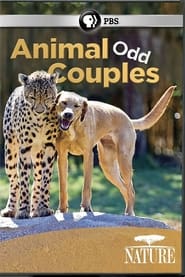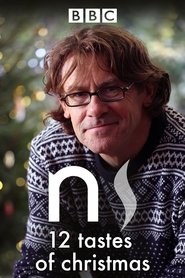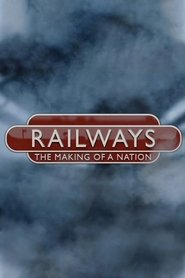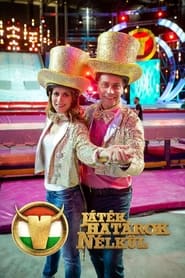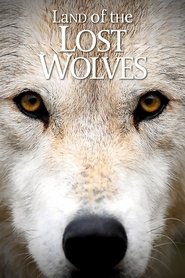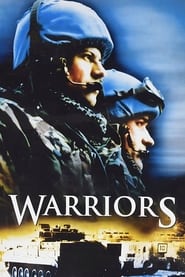Bbc One TV Series - Page 89
-
Sweet Sixteen
0000
star 5Sweet Sixteen is a British sitcom that aired on BBC1 in 1983. It stars Penelope Keith and was written by Douglas Watkinson and directed and produced by Gareth Gwenlan. -
Sunday Life
2008
Sunday Life
2008
Sunday Life was a British magazine/discussion television programme broadcast on Sundays on BBC One beginning 20 April 2008. It was presented by Louise Minchin and Colin Jackson. The show, which replaced the Heaven and Earth Show was intended to focus on "inspiring stories and thought-provoking discussion", with the slogan "Real stories. Real people. Real life." The show was partly intended to fill the public service remit of the BBC's broadcasting licence, as well as its Sunday morning religious quota. It was dropped from the schedule after one series and its slot in the schedule replaced by The Big Questions. -
Private Schulz
1981
star 5.8Private Schulz is a BBC television comedy drama serial set mostly in Germany, during and immediately after World War II. It stars Michael Elphick in the title role and Ian Richardson playing various parts. Other notable actors included Tony Caunter, Billie Whitelaw, Billy Murray and Mark Wingett. Over six one-hour episodes, it tells the story of a German fraudster and petty criminal who is forced against his will to serve in the SS. In a story based on the real, though unrealised, plot by the Germans known as Operation Bernhard, he tricks the Nazis into making counterfeit British five pound notes, millions of which will be used to destroy the British economy. However, Schulz is primarily interested in stealing them. Other elements of the story based on the history of the period include the Venlo incident, when two British intelligence officers were abducted from the Netherlands at the very start of the war, and Salon Kitty. This was a Berlin brothel which was secretly run by the SD, for the purpose of spying on i -
Justice
2011
star 6Justice is a British legal drama starring Robert Pugh as Judge Patrick Coburn. The first episode was originally broadcast on 4 April 2011 on BBC One. -
Rhodes
1996
Rhodes
1996
Martin Shaw stars as Cecil Rhodes, the man whose controversial career included the creation of de Beers, the addition of nearly one million square miles to the Britain's African Empire, and had given his name to a country (Rhodesia, now Zimbabwe) larger than most of Europe. Martin Shaw's son plays the younger Rhodes and other cast members include Neil Pearson, Frances Barber and Ken Stott. -
Coastal Path
2016
Coastal Path
2016
Follow explorer and adventurer Paul Rose as he treks over 630 miles along England's longest national walking trail - the South West Coast Path beginning in Minehead, Somerset and ending at South Haven Point, Dorset. -
The Ministry of Time
0000
The Ministry of Time
0000
The Ministry of Time, a newly established government department, is gathering ‘expats’ from across history in an experiment to test the viability of time-travel. Commander Graham Gore (an officer on Sir John Franklin's doomed 1845 Arctic expedition) is one such figure rescued from certain death – alongside an army captain from the fields of the Somme, a plague victim from the 1600s, a widow from revolutionary France, and a soldier from the seventeenth century. -
Chinook: Zulu Delta 576
2024
1994. A horrific helicopter crash in the Mull of Kintyre wipes out Northern Ireland's top intelligence personnel. The pilots are blamed - and a fight for truth and justice begins. -
Lord of the Flies
0000
Lord of the Flies
0000
The story of a group of young schoolchildren who find themselves stranded on a tropical island with no adults, following a deadly plane crash. In an attempt to remain civil, the boys organize themselves, led by Ralph and supported by the group's intellectual, Piggy. But Jack, who is in charge of signal fire duty, is more interested in hunting and vying for leadership and soon begins to draw other boys away from the order of the group and, ultimately, from hope to tragedy. -
Lost Highway
2003
Lost Highway
2003
-
Crime Traveller
1997
star 7.4Detective Jeff Slade teams up with scientist Holly Turner, whose late father has created a time machine that can travel back several hours. Together they solve mysteries using the device. In the beginning of episodes (before they travel back in time), things happen because they DID travel back in time, and they are constantly working to avoid paradoxes. This approach to time-travel is unusual in sci-fi movies, and keeps the plot twisted. -
How to Stay Young
2016
How to Stay Young
2016
A team of health experts meet ordinary people to reveal how quickly their organs, skin, muscles and brain are growing old. Using the latest science, they attempt to help them slow down the speed at which they’re ageing. -
Animal Odd Couples
2013
star 5Wildlife biologist Liz Bonnin sets off on a worldwide journey of discovery to find out why animals of different species make friends with each other, and even with humans. -
Nigel Slater's 12 Tastes of Christmas
2012
Nigel Slater shares his favourite festive treats that make Christmas a truly tasty time of year, with tips on cooking a feast for many, or some simple self-indulgence to get the festive juices flowing. -
Railways: The Making of a Nation
2016
star 8Historian Liz McIvor explores how Britain's expanding rail network was the spark to a social revolution, starting in the 1800s and continuing through to modern times. -
Home Is Where the Art Is
2019
Nick Knowles challenges three talented artists to create beautiful artwork for people they've never met. Our arty trio must try to work out the buyer’s style and taste by snooping around their home, but when the two sides finally do meet, who will win the coveted commission? -
Jeux Sans Frontières
1965
star 9.5Jeux Sans Frontières was a Europe-wide television game show. In English-speaking countries, the show is also known as It's a Knockout, the title of the BBC's domestic version. In its original conception, it was broadcast from 1965 to 1999 under the auspices of the European Broadcasting Union and featured teams from different European countries in outlandish costumes competing to complete bizarre tasks in funny games. The original series run ended in 1982 but was revived a few years later with a different complexion of nations and hosted by smaller broadcasters. In the United Kingdom, participants came from the heats of It's a Knockout. The original presenter was Mcdonald Hobley, but he stayed for just one season before handing over to Katie Boyle, who in turn was replaced by David Vine and Eddie Waring. It was not until 1971 that the presenter most associated with the role, Stuart Hall, took over presenting the UK heats and also provided the British commentary for the international version along with Warin -
Land of the Lost Wolves
2012
star 7.5Two-part natural history series following the fortunes of one very special pack of wolves as they return to North America's West Coast. -
Warriors
1999
star 8The series tells the story of a group of British peacekeepers serving in a peacekeeping operation of the UNPROFOR in Vitez, in Bosnia during the Lašva Valley ethnic cleansing in 1993. -
Sportsnight
1968
Sportsnight
1968
Sportsnight was a midweek BBC television sports programme that ran from 1968 until 1997.
